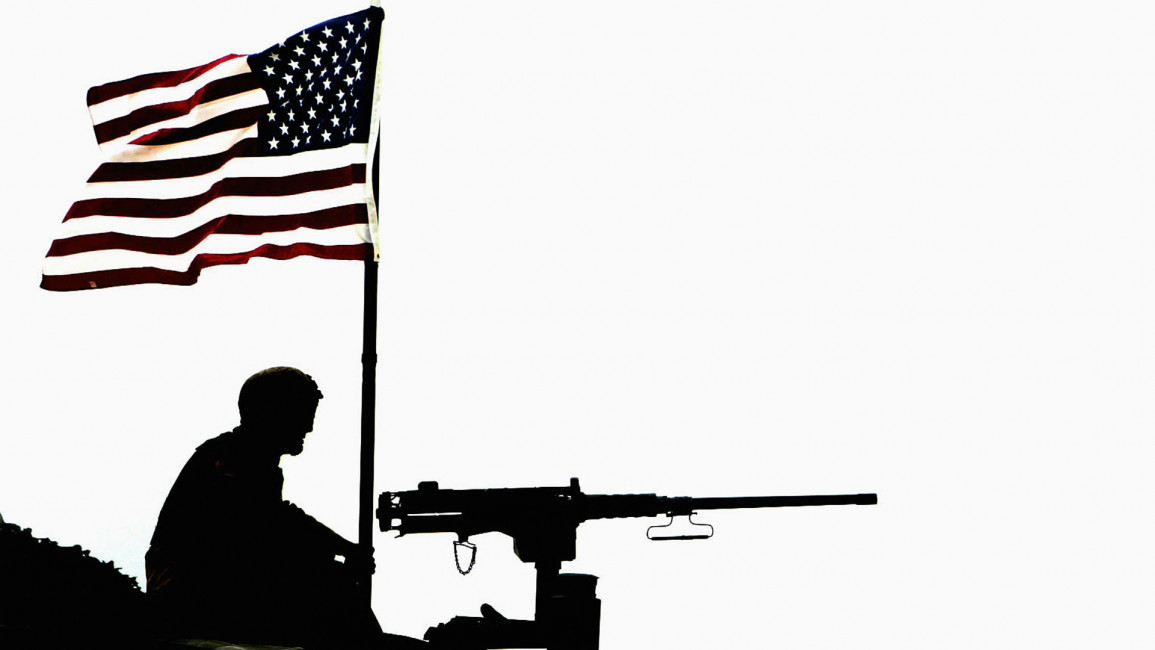
Islamic State: the cancer of a dying US empire
Washington could of course argue that it is involved in an intensive aerial assault against the militant group in Iraq and Syria. Nevertheless, Soleimani is correct.
Cancer within
Although IS is a by-product of decades of Baathist brutality, it only emerged after the US-led invasion and occupation of Iraq.
The global reach of IS also reflects a general failure of the US neoliberal empire, which had failed to deliver justice, equality and respect to the rest of the world.
In many ways, IS is a cancer of the dying US empire. Cancer is born inside the body, made of the body's own cells, is aggressively resistant against its host and spreads fast. Cancer reproduces but does not create life - it destroys its host and ultimately itself.
Lifestyle choices often increase the chances of falling ill. The choices of the US, it could be argued, did that very thing.
The illegal "shock and awe" war in Iraq led to the deaths of hundreds of thousands of people. The US authorised torture including waterboarding, mock executions and humiliation.
Special forces in Iraq were trained according to a model used by the US decades earlier in El Salvador during a civil war, which left more than 70,000 people. These Iraqi forces operated as death squads, and slaughtered thousands of Sunni Iraqis and imprisoned many more.
Many of those tortured and imprisoned would later pledge allegiance to IS, or its earlier incarnations.
| When Baghdadi was released from a US-run prison prison in Iraq back in 2009, he told US officers, 'See you guys in New York'. |
Last year, US army colonel Kenneth King recalled that, on release from a US prison in 2009, the current leader of IS, Abu Bakr al-Baghdadi, told US officers: "I'll see you guys in New York."
He has not yet reached the city, but IS has waged a campaign of shock and horror that has killed thousands. Its fighters have carried out torture, including waterboarding, and both mock and real executions. Its prisoners are dressed in the infamous orange jumpsuits reminiscent of the inmates at Guantanamo Bay.
Its atrocities are filmed and posted on social media, showing the slaughter and enslavement of Iraq and Syria's ethnic minorities.
After the US campaign in Iraq subsided, Iraqi society broke down due to the Bush administration's inability or unwillingness to understand the structural complexity of the Baathist regime. Despite all of its faults, Saddam Hussein's regime was both a manager and suppressor of the political, religious and class based grievances in Iraqi society.
Empire of evil
Instead, the coalition provisional authority completely dismantled the security state, leaving chaos in its wake. The arrogance of the US effort likely bred as much hostility as the bloodshed that came out of it.
This arrogance continues today. Rather than recognising the complex nature of IS, understanding why it has evolved and coming up with a sound strategy to confront it, both at home and abroad, the US has instead further entrenched both itself and its cancer by committing even more atrocities – unregulated markets fuelled by unfettered and illegal wars, the military-industrial complex on steroids.
Although no US government official has been held accountable for the war crimes of the 21st century, according to Project Salam, a legal advocacy organisation in New York, hundreds of people, mostly men - nearly all Muslims - were prosecuted in the US as terrorists for "crimes" including marriage, money transfers and even taking a photograph of a river.
The US neoliberal project most certainly created its own sickness with IS. A real fight against the group would need the US to confront itself, which it refuses to do. This is why Soleimani is correct in saying that, so far, the US "has not done a damn thing".
Opinions expressed in this article remain those of the original author and do not necessarily reflect the opinions of Al Araby Al Jadeed, its editorial board or staff.



